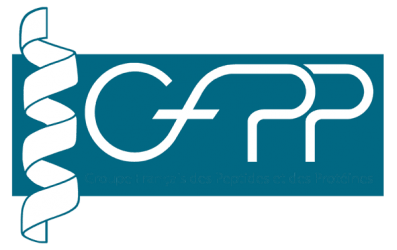
The solid-phase synthesis of natural product phakellistatin 21/22 afforded an unnatural conformer 1, with all trans-proline residues. The synthetic peptide 1 lacked cytotoxicity, unlike the natural product. However, peptide 1 and its analogs 2, 3 and 5 were found to have neuroprotective effects in terms of supporting growth of the primary cortical cells.
ABSTRACT
The phakellistatins are a class of cyclic peptide natural products among which phakellistatin 21 and 22 isolated from the marine sponge Stylissa flabelliformis are cyclo(Pro1-Pro2-Met(O)3-Phe4-Glu5-Leu6-Pro7-Pro8-Tyr9-Ile10) epimeric at the methionine sulfoxide residue. The natural product contains two cis and two trans proline residues and is reported to have significant cytotoxic activities. We attempted the total synthesis of phakellistatin 21/22 via on-resin macrocyclization using methionine as a building block. The final product contained methionine sulfoxide, suggesting that aerial oxidation took place during the synthesis and during the original isolation of the natural product. Our synthetic peptide cyclo(trans-Pro
1,2,7,8
)-Pha21 (1) was identified as an unnatural conformer of natural product phakellistatin 21/22 with all Pro residues present as trans amides. The Peptide 1 was inactive against human cancer cell lines, unlike the natural product. We additionally synthesized alanine scanning Analogs 2–5 in which a Pro residue was replaced by Ala and Analog 6, where all four Pro residues were substituted by Ala. Peptides 1, 2, 3, and 5 were found to have neuroprotective effects on primary cortex cells and are potential leads for the treatment of neurodegenerative disorders.


